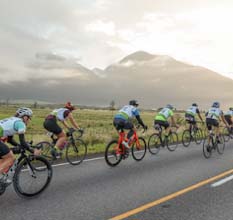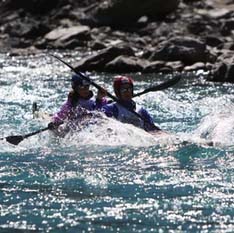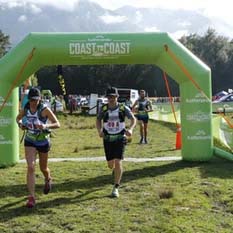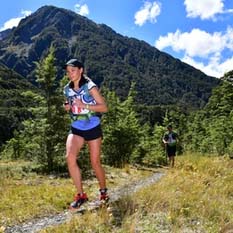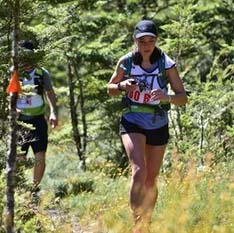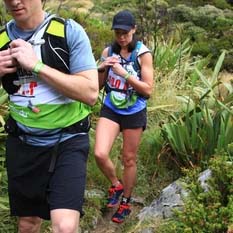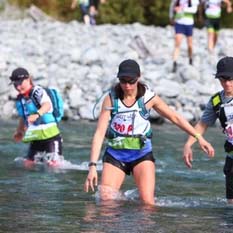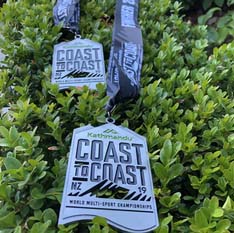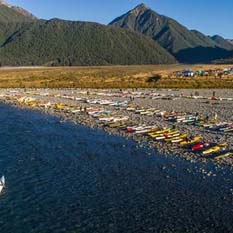Have You Ever Considered Entering into a Race or Event That Is Known as One of the World’s Longest Multi-Sport Events?
Well, if you’re like our Maple Ridge Physiotherapist, Brayley, and her husband, Cliff, they entered and completed the Kathmandu Coast to Coast on February 8th and 9th, of 2019. This event, also known as the Race Across New Zealand, is a 243 km race starting on the West Coast and traversing the width of the South Island of New Zealand, finishing on the East Coast.
You’re Probably Wondering, What Inspired Them to Take on Such an Intense Event?
Cliff had signed up for the race prior to meeting Brayley but had to withdraw his entry. However, he still wanted to complete the event one day. Six years ago, Cliff met Brayley for the first time in New Zealand where he had unwittingly met his Kathmandu Coast to Coast race and life partner. Brayley and Cliff decided they wanted to complete the race together and were inspired by the unique components of the race itself, which are running, biking, and kayaking, not to mention, it couldn’t have been held in a more incredible location!
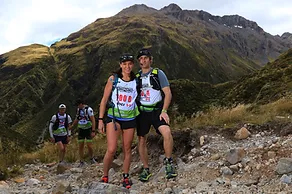
Brayley and Cliff Explained, the Race Is Broken Down as Follows
Day 1
- 2.2 km run
- 55 km cycle
- 30.5 km mountain run
- Refuel and Sleep!
Day 2
- 15.5 km cycle
- 1.3 km run
- 70 km kayak
- 69.5 km cycle
Finish! – That’s not so bad, right?!
We Asked Brayley and Cliff Some Questions About Their Experience, Keep Reading to See What They Had to Say!
What Was Your Favourite Part of Your Experience?
“With respect to the training, having never trained for a race like this before it came with many exciting and many challenging experiences. The race occurs in New Zealand’s summer, which meant we were completing the bulk of our training in our winter. We endured lots of cold and rainy training. But despite this a few highlights include:
- Completing our Grade 2 kayak certification in Squamish in early December, snow and all.
- Crisp morning kayak training along the Alouette River.
- Utilizing the amazing terrain around us for our mountain run training. This often meant venturing out to Golden Ears, usually in the pouring rain, and ascending as high as we could into the snow.
- We also both began riding road bikes for the first time.
All of this difficult training was rewarded by the perfect weather conditions in New Zealand, with the exception of a massive headwind for our last leg of the race. We got to experience a competition in some of the most beautiful terrain New Zealand has to offer. Some highlights of the race included:
- The mountain run which took us through a pass of the Southern Alps and the kayak portion along the Waimakariri River – both afforded some of the most incredible and breathtaking views, most of which are not accessible unless you hit the trail or the water.
- Keeping our kayak upright among the braids and rapids was an achievement in itself (most were not so lucky!).
- The incredible but powerful river crossings on the mountain run (something we hadn’t simulated at home!)
- The variability of the terrain from beginning to end.
- Competing in such a large event with athletes of all levels was exciting and energizing. We met some incredible people along the way.
And of course, competing alongside my husband was extremely motivating and rewarding. We both had our struggles and our strengths throughout the training and the race, but if it weren’t for our teamwork and support for one another this event would have been even more difficult to complete.
Finally, knowing that over 243 km you travelled by bike, foot, and water from one coast to another is a pretty unreal feeling!”
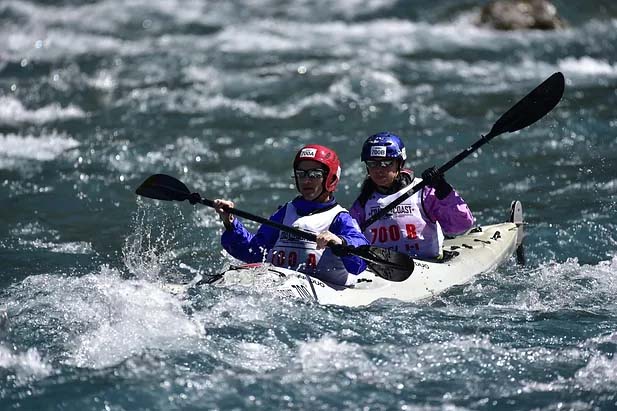
Overall, What Did You Learn From Your Experience?
“We both knew this was a race we wanted to complete but we both knew it would come with many challenges along the way. From purchasing bikes to training rain or shine (or snow) to committing our whole weekends to full-day race simulation training to managing injury to travelling with all of our gear. No matter what challenge we faced in training, we knew we could use it as a learning opportunity and troubleshoot in preparation for the race. Even though training tested us, when it came to race day we knew everything we had been doing leading up to the race would help us complete each leg of the race, even at the most challenging times.”
Our Main Takeaways Were:
- Set challenges for yourself, take small steps to get there. I remember the first day we tried a bike to run transition, my legs felt like jelly and I thought, “wow, we have a lot of work ahead”.
- Consistency and commitment are key. We set up the best training plan that allowed for our schedules at the time. We did our absolute best to stick to the plan, through weather variables, fatigue, and life, we tried to remain consistent in our training. Could we have done better on race day? Absolutely!..that’s what the next opportunity is for.
- Train race day simulations. As we approached the last few months of our training, we made our weekend training days longer and longer with simulation days where we could practice getting off our bikes and transition directly into running. The race also requires you to carry compulsory gear on race day, this meant packing our backpacks with the water, food, and supplies for training, just as we would on race day.
- Support networks are key. We were lucky to have one another to train and compete with, it made the whole experience much more enjoyable! Whether training individually or as a team, having others around you that support your goals and achievements can make the training and final event mentally easier. Knowing we had support from back home pushed us to get through that next step. We also had incredible support from the Kinectiv health care practitioners through our training.”
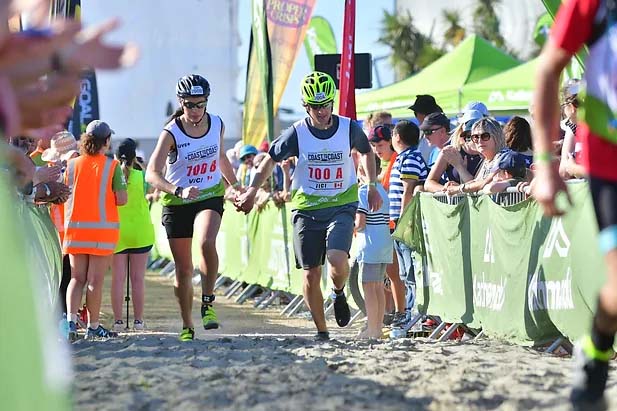
Would You Do It Again?
“Absolutely! We were registered to compete in the 2021 Coast to Coast this coming February but unfortunately, due to travel restrictions, we have had to withdraw our application. As a replacement, we hope to simulate a race here at home in the Spring/Summer and hopefully, this will lead to training for the 2022 Coast to Coast. We are SO eager to go back to enjoy the views…and of course, challenge our 2019 finish time. And maybe one year, we will compete individually.”
I don’t know about you, but I am tired just thinking about that experience! Have you ever competed in an event like this? Tell us about your experience!
